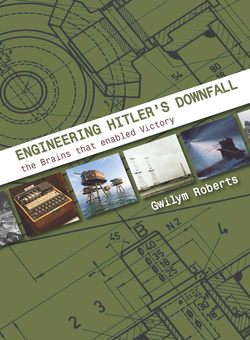Читать книгу Engineering Hitler's Downfall - Gwilym Roberts - Страница 54
На сайте Литреса книга снята с продажи.
RADAR, BATTLES IN THE AIR, AND THE BLITZ Victories followed by survival
ОглавлениеWinston Churchill memorably eulogised the brave pilots who fought the Battle of Britain, and so saved the nation, in those crucial make-or-break months from July to October 1940: ‘Never in the field of human conflict was so much owed by so many to so few.’
The Prime Minister well knew, however, that it was an invisible but immensely powerful engineering development, which was no less significant than those celebrated dog-fight heroics, that had made the epic victory possible.
‘The RAF’s Hurricanes and Spitfires were handicapped by clumsy tactical doctrine and .303 machine-gun armament with inadequate destructive power,’ Max Hastings wrote in All Hell Let Loose, ‘but squadrons were controlled by the most sophisticated radar, ground-observer and voice-radio network in the world, created by an inspired group of civil servants, scientists and airmen.’
With radar, he added, ‘the RAF had developed a remarkable system of defence, while their opponents had no credible system of attack.’
That alleged German weakness would not have been apparent to most Britons in the days and months after the Dunkirk evacuation. By mid-1940 the British and French armies had been defeated in Norway and France, and Norway, Denmark, the Low Countries and the northern and western coastal areas of France had been occupied. Therefore, Germany was able to base her aircraft, U-boats, and surface vessels along the whole continental coastline from northern Norway to the Franco-Spanish border.
Britain had thus became vulnerable to short-range aerial attack and possible invasion while the German Navy had easy access to the North Atlantic and could more easily attack the merchant vessels supplying Britain with her essential imports of food, fuel and armaments.
The country was in the gravest peril, though the population was resolutely behind the Government and faced the prospect with equanimity. Their attitude was well summarised by the reputed remarks of a West End club porter who said, ‘Well, sir, we’ve made the final and, what’s more, we are playing at home!’
